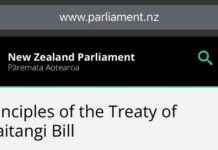The government’s controversial decision to provide free vaping starter kits to smokers as a tool to quit smoking has sparked significant debate in the public health sector.
Associate Health Minister Casey Costello defended the initiative, stating that the distribution of vaping products through stop-smoking services across the country aims to assist adults in transitioning to a less harmful alternative to traditional cigarettes. Costello emphasized the positive impact of vaping on reducing smoking rates and the government’s commitment to supporting smokers in their journey towards quitting.
However, the announcement was met with criticism from respiratory advocates, particularly Letitia Harding, the chief executive of the Asthma and Respiratory Foundation. Harding expressed concerns about the lack of approval for vaping products by reputable health organizations such as the World Health Organisation, the FDA, and Medsafe in New Zealand. She questioned the efficacy of using vapes for smoking cessation without proper consultation and approval processes, labeling the government’s approach as “strange” and “crazy.”
Looming Questions and Concerns
Harding highlighted the absence of a comprehensive plan and the potential consequences of simply transitioning smokers from one addictive product to another without a clear exit strategy. She raised critical questions about the sustainability of long-term nicotine addiction management through vaping and the implications of a society heavily reliant on these products in the future.
Advocates’ Call for Clarity and Long-Term Solutions
In a plea for transparency and foresight, Harding urged the government to provide clarity on the funded vaping products and outline strategies for addressing nicotine addiction in the long run. She emphasized the importance of developing comprehensive cessation programs that prioritize individuals’ health and well-being beyond immediate solutions.
The Road Ahead
As the debate surrounding the government’s vaping initiative continues to unfold, stakeholders are calling for a more robust and evidence-based approach to smoking cessation. The future of smoking cessation programs in New Zealand hinges on striking a balance between innovative solutions and long-term health outcomes for the population.
Let’s take a moment to consider the impact of such initiatives on individuals struggling with addiction and the importance of holistic approaches to public health challenges. How can we ensure that our efforts to combat smoking align with the best interests of those affected by these decisions? It’s crucial to prioritize the well-being of our communities and work towards sustainable solutions that empower individuals to lead healthier lives.

















